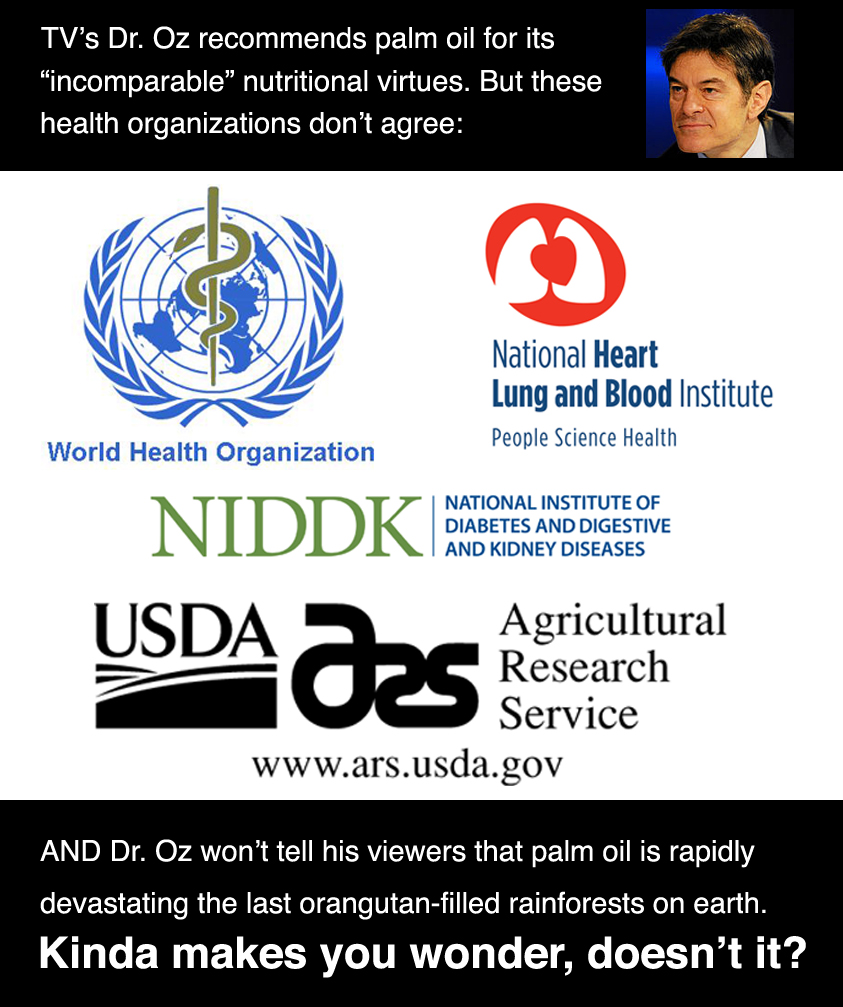Could it be true that palm oil is not only bad for orangutans, but for our health too? According to institutions such as the World Health Organization (WHO) and the National Heart, Blood and Lung Institute, the answer is yes.
Based on its saturated fat content and effects on blood cholesterol, several such organizations have recommended reducing consumption of palm oil. Problem is, it’s so ubiquitous in grocery stores these days that unless you strictly avoid packaged, processed and refined foods altogether, you’re consuming palm oil in at least one if not more meals per day. From soy milk to breakfast cereal, peanut butter to frozen dinners, granola bars to cookies, even in your seemingly healthier foods like whole wheat pizza crust or vegan butter spreads—palm oil has become a staple in the American diet.
So, if palm oil is already a regular ingredient in our largely unhealthy American diets, why would Dr. Oz, a cardiothoracic surgeon who supposedly has our best interest at heart, be recommending we incorporate even more palm oil into our diet through the use of red palm oil?

Do you think it’s ironic that, as a doctor who specializes in treating heart and lung disease, he’d be advocating increased consumption of palm oil when the National Heart, Blood and Lung Institute is saying the opposite?
What do you think—is palm oil as detrimental to our health as it is to the survival of fragile species like orangutans? And if so, why is Dr. Oz encouraging millions of his viewers around the world to give palm oil a try?
It’s not too late to help reverse the buying frenzy Dr. Oz has already inspired. Sign our petition to Dr. Oz demanding that he retract his irresponsible statements on air.
References:
1. World Health Organization. “Diet, Nutrition and the Prevention of Chronic Diseases.” WHO Tech. Rep. Series 916. Geneva. 2003. P. 88.
2. National Heart, Lung, and Blood Institute (NHLBI). “Choose foods low in saturated fat.” http://www.nhlbi.nih.gov/chd/Tipsheets/satfat.htm, Accessed 8/25/10.
